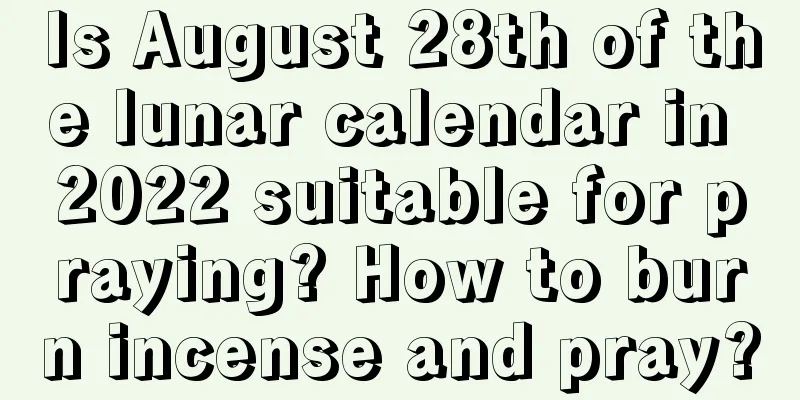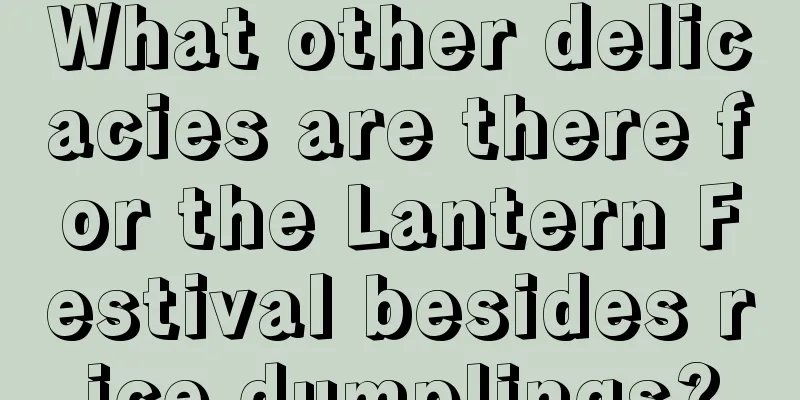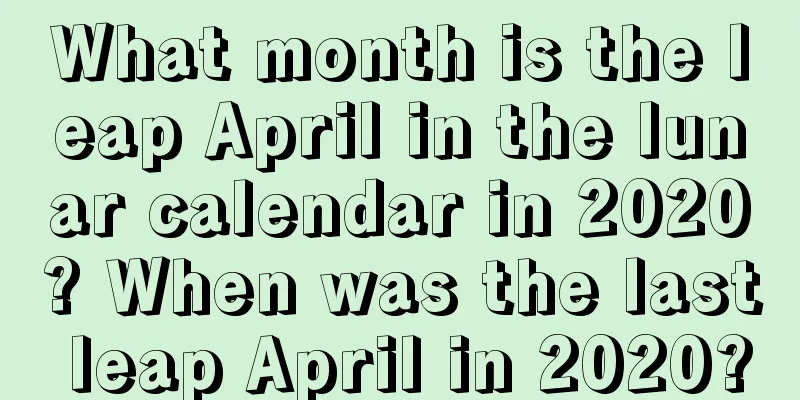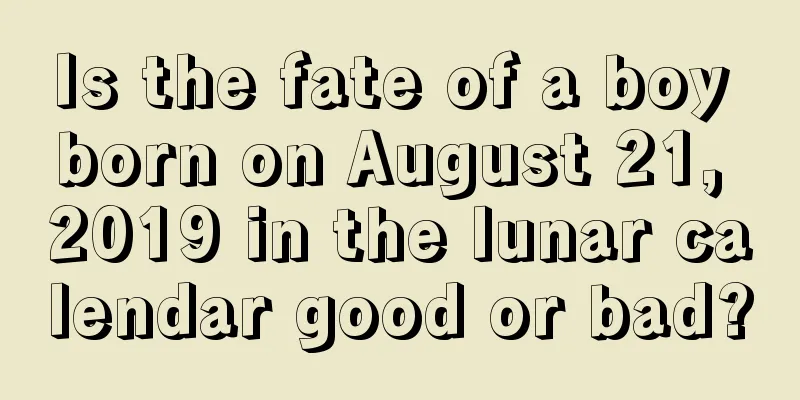What is Qingming Festival also called? Five taboos you need to know about Qingming Festival
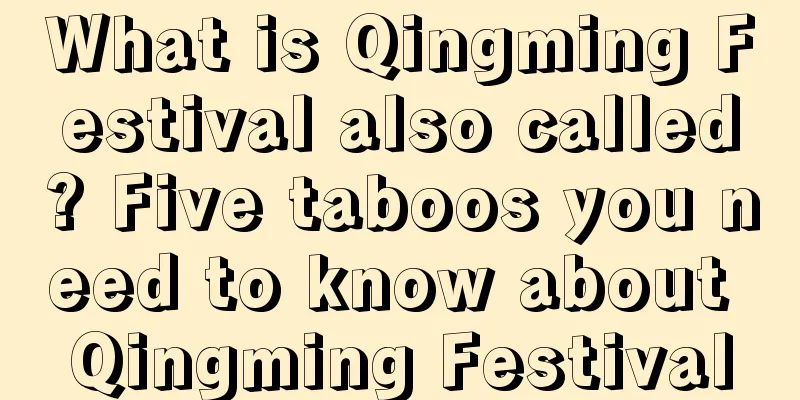
Introduction: Qingming Festival is one of my country's four major traditional festivals. Qingming Festival is also called the outing festival and is one of my country's three major ghost festivals. Do you know what other nicknames there are for Qingming Festival? What are the taboos during Qingming Festival? Let’s take a look at these questions together! March is wonderful because of your encouragement. The seeds sown in March will yield a good harvest in autumn. The drizzle in March nourishes you like milk and brings you the most beautiful start. I wish your March will be as beautiful.What are the nicknames of Qingming Festival?1. Cold Food Festival is also known as Hot Food Festival, No Smoking Festival and Cold Festival. It is held 105 days away from the winter solstice, which is only one or two days away from Qingming Festival. The main custom of this festival is to ban fire. People are not allowed to light fire and cook food. They can only eat prepared hot and cold food, hence the name.2. It is said that after Dayu controlled the flood, people used the word "Qingming" to celebrate the end of the flood and the peace in the world. The origin of Qingming Festival is when spring comes, flowers bloom, all things revive, the sky is clear and the earth is bright, it is a good time for spring outings. Spring outing began as early as the Tang Dynasty and has become a custom passed down from generation to generation. In addition to enjoying the natural scenery of lakes and mountains and the beauty of spring, outings also allow people to engage in various cultural and entertainment activities to add interest to life. 3. Tomb sweeping is popular during the Ghost Festival and Tomb Sweeping Day. In fact, tomb sweeping is part of the Cold Food Festival the day before Tomb Sweeping Day. It is said that the Cold Food Festival originated from the story of Duke Wen of Jin mourning Jie Zitui. In the 20th year of Kaiyuan reign of Emperor Xuanzong of Tang Dynasty, he issued an imperial decree to the whole country to "visit the tombs on Cold Food Day". Because Cold Food Festival is close to Qingming Festival, it gradually became a tradition to sweep tombs on Qingming Festival. During the Qingming Festival, tomb sweeping is more popular. In ancient times, children would often fly kites when visiting graves. Some kites are equipped with bamboo flutes, which make sounds when blown by the wind, just like the sound of a zither. It is said that this is how the kite got its name. Five taboos you need to know about Qingming Festival1. Not all ethnic groups worship their ancestors on Qingming Festival. my country is a multi-ethnic country, and each ethnic group has its own set of customs and habits. Although tomb sweeping and ancestor worshipping on Qingming Festival has long been imprinted in the hearts of many people, some ethnic minorities in my country will carry out similar activities during other ethnic festivals. Days like Little New Year, New Year's Eve, the fifteenth day of the first lunar month, the twelfth day of the seventh lunar month, and the fifteenth day of the seventh lunar month are traditional days for sacrifice for some ethnic groups.2. The regular order cannot be reversed. Tomb sweeping and sacrifices have a sequence, and many elderly people will pay close attention to this. Normally the cemetery or graveyard is cleaned first and then the sacrifices are offered. Since sacrifices are very particular about feng shui and etiquette, the order of sacrifices should be as accurate as possible. The order is as follows: repair the tomb - burn incense - offer meat - toast - worship - farewell. 3. When is the best time to pay homage to the ancestors? The best time to pay homage to the ancestors is during the Yin hour, which is 5 to 7 o'clock. However, since most cemeteries are far away from where people live, or even outside the cities where people live and work, it is usually not that early, but it is best to complete the tomb sweeping and worship before 3 pm. 4. Pregnant women should avoid tomb sweeping. Generally speaking, pregnant women should avoid tomb sweeping activities during the Qingming Festival. In addition to emphasizing customs, long-distance travel is actually not good for both women and fetuses. I believe that if there are elderly elders in the family, most of them will prevent pregnant women from paying homage to their ancestors during the Qingming Festival. 5. Use white chrysanthemums to mourn the deceased. In ancient my country, chrysanthemums were regarded as flowers of sustenance, representing longing and remembrance. White chrysanthemums are the most suitable, and they can also be matched with some green grass, such as lilies, green leaves, carnations, etc., which will be more beautiful. However, yellow chrysanthemums are known as longevity chrysanthemums and are more suitable for visiting patients rather than paying homage to the deceased. Summary: The above article provides a detailed analysis of the nicknames of Qingming Festival and the taboos you need to know. You can refer to it. I hope you like this article! |
<<: How do Hakka people celebrate Qingming Festival to show filial piety?
Recommend
Which dynasty did mooncakes come from? Why can't I spend the Mid-Autumn Festival with my family?
Introduction: It’s Mid-Autumn Festival again. So f...
Is it a good idea to get married on the Winter Solstice in 2020? Is the Winter Solstice a traditional festival?
Is it a good idea to get married on the Winter Sol...
Is September 22nd of the lunar calendar in 2022 an auspicious day? What does the hexagram show?
The existence of auspicious days can give us certa...
Will the Civil Affairs Bureau be open on the fourth day of the first lunar month? Can I get a marriage certificate?
The Civil Affairs Bureau is closed during the Spri...
Is June 13th of the lunar calendar in 2022 an auspicious day for moving into a new house? What are the rules?
The sixth lunar month brings the summer heat. Is t...
Is the fifth day of the second lunar month in 2019 an auspicious day?
Is the fifth day of the second lunar month in 2019...
Is May 27th of the lunar calendar in 2018 a good day? Is it an auspicious day?
Introduction: China is a traditional country, and ...
Introduction to the zodiac signs of babies born on March 21st of the lunar calendar in 2022. What is their zodiac sign?
Many babies are born every day, and the baby’s zod...
What is the lunar calendar for the twelfth day of the first lunar month in 2019? What are the customs?
The Spring Festival occupies a very important plac...
How should I post on WeChat Moments during New Year’s Eve?
Introduction: On New Year’s Eve, many people bring...
Will you give gifts to your leaders on May Day 2021? What should I give as a gift?
Labor is respectable, life is respectable. As the ...
Is the sixth day of the second lunar month in 2020 an auspicious day for ancestor worship? How to choose an auspicious day?
Is the sixth day of the second lunar month in 2020...
Where are the God of Wealth and God of Happiness on the first day of May?
The first day of May is the first day of the month...
How is the first day of September in the lunar calendar in 2021? Can we open the business?
The pros and cons of opening a business at differe...
Is it a good time to get a haircut on September 16th of the lunar calendar in 2017?
Introduction: I believe that many people believe i...


